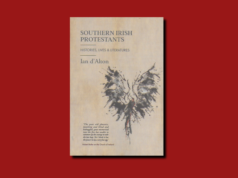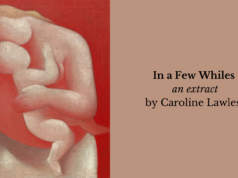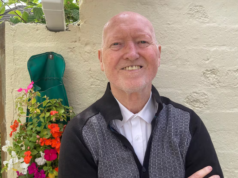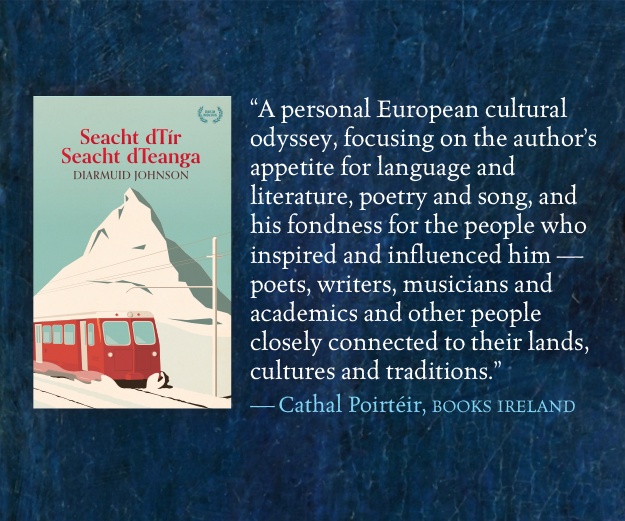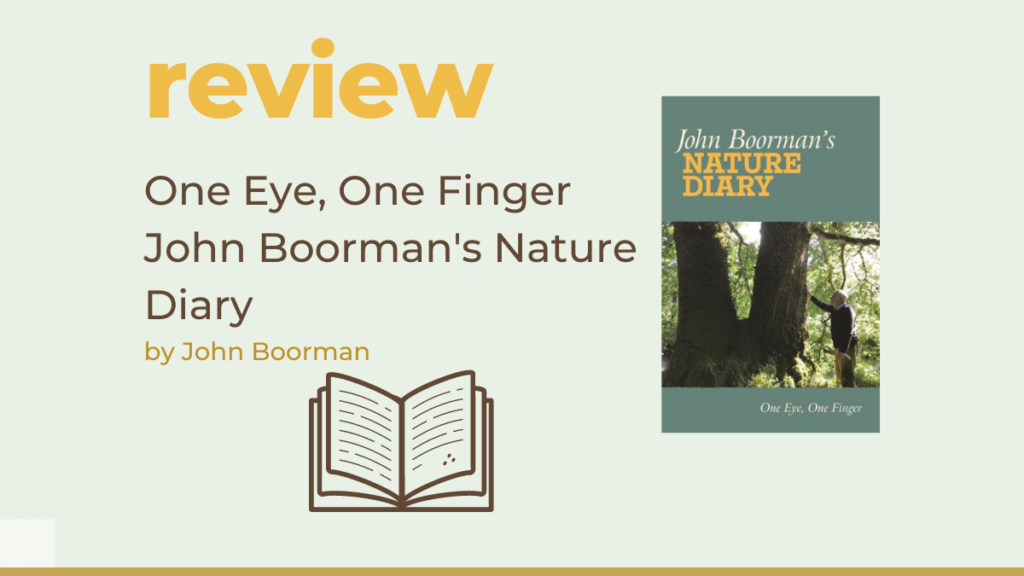
John Boorman’s Nature Diary: one eye, one finger
by John Boorman | Lilliput Press | 128pp | hb €15 | 9781843517955
Review by Susan McKeever
At the time of writing, November 2020, we are still in the grip of the COVID-19 pandemic and enduring a second lockdown—something nobody could have imagined at the dawn of the year. During the first lockdown, John Boorman CBE, director of classic Hollywood films such as Deliverance, decided to start a nature diary while cocooning in his Wicklow idyll. After all, he is surrounded by nature there: he has lived for the last 50 years in an old rectory nestled among woodland, meadows and streams and splendidly isolated behind a sturdy set of iron gates. The diary begins on 1 April and has daily entries until the end of June. Susan Morley’s sensitive drawings of flowers, leaves, birds, the house and the river appear on many pages, interwoven with the text to give a visual hook to the nature descriptions.
Reading each entry, a meditative calm descends, and I can almost feel the bark of the twin oak he so lovingly strokes when he visits it, as if greeting an old friend, before sitting on the bench beneath to drift in and out of ruminations and dreaming. His trees are akin to pets—each one has its unique foibles and attributes, each one is beloved in its own way. We are alerted to the changes in the weather—always changing, as this is Ireland—by a weather update heading each entry, from ‘A heavy blanket of cloud this morning’ early on in April to ‘Sun probing me out of bed very early’ on the eve of the solstice.
For John, the lockdown—which brings a ‘soothing silence’—has a silver lining as two of his seven children, Lee and Lili Mae, have decided to isolate with him for three months. Lili Mae nurtures with coffee and hot soups; Lee ventures out with him to explore anew his childhood playground (which he left at the age of nine when his mother ended the marriage), climbing trees, swimming daily, catching trout and snaring rabbits. Boorman, at 87 years old, is diminished and easily wearied, unable to walk much or swim in the estate’s river, but Lee becomes his dad’s saviour, broadening his horizons again to possibilities, widening the narrow scope his life had become. They go together to the swimming hole and a kind of magic happens, as, held and encouraged by Lee, John manages to swim again, splashing, diving, playing with abandon and confident enough to jettison his flotation device completely.
Another day Lee takes his father in his wheelchair across the river to visit the groves of native woodland Boorman had planted there nearly 30 years earlier. They return to old habits as John asks his son to identify trees along the way—pedunculated oak, common alder, white willow, aspen, hornbeam. In a moving gesture, son takes father on his back, a role reversal, to walk up the wheelchair-unfriendly ground into the heart of their small forest, both ‘gazing in wonder at the unending green’.
Scattered among the observations of trees, leaves, flowers and wildlife are anecdotes and vignettes from Boorman’s richly lived past. We read of the time he spent with the Xingu tribe in the Amazon while preparing The Emerald Forest, where ‘The relationship of the indigenous people with nature was … seamlessly integrated’. Memories of being a child during World War Two surface, revealing that a scene from Hope and Glory was based on his own family’s experience of being bombed, their bay window glass shattered and flying towards them. Added to this is pithy commentary on subjects as diverse as politics, science, the subconscious mind, post-Covid life, and Darwin’s theory. Several times he imagines dialogue between Charles and Mrs Darwin (a devout Christian): ‘Darling, I have some bad news. God didn’t create the world.’
This is a thoughtful narrative to salve the soul in these times of uncertainty, where nature and the cycle of life remain a constant, something we can still be sure of.
***

Susan McKeever is an editor, writer and ghostwriter for several Irish and international publishers and authors. She works from her home in the red-brick heart of Dublin’s Portobello. @MckeeverSusan








